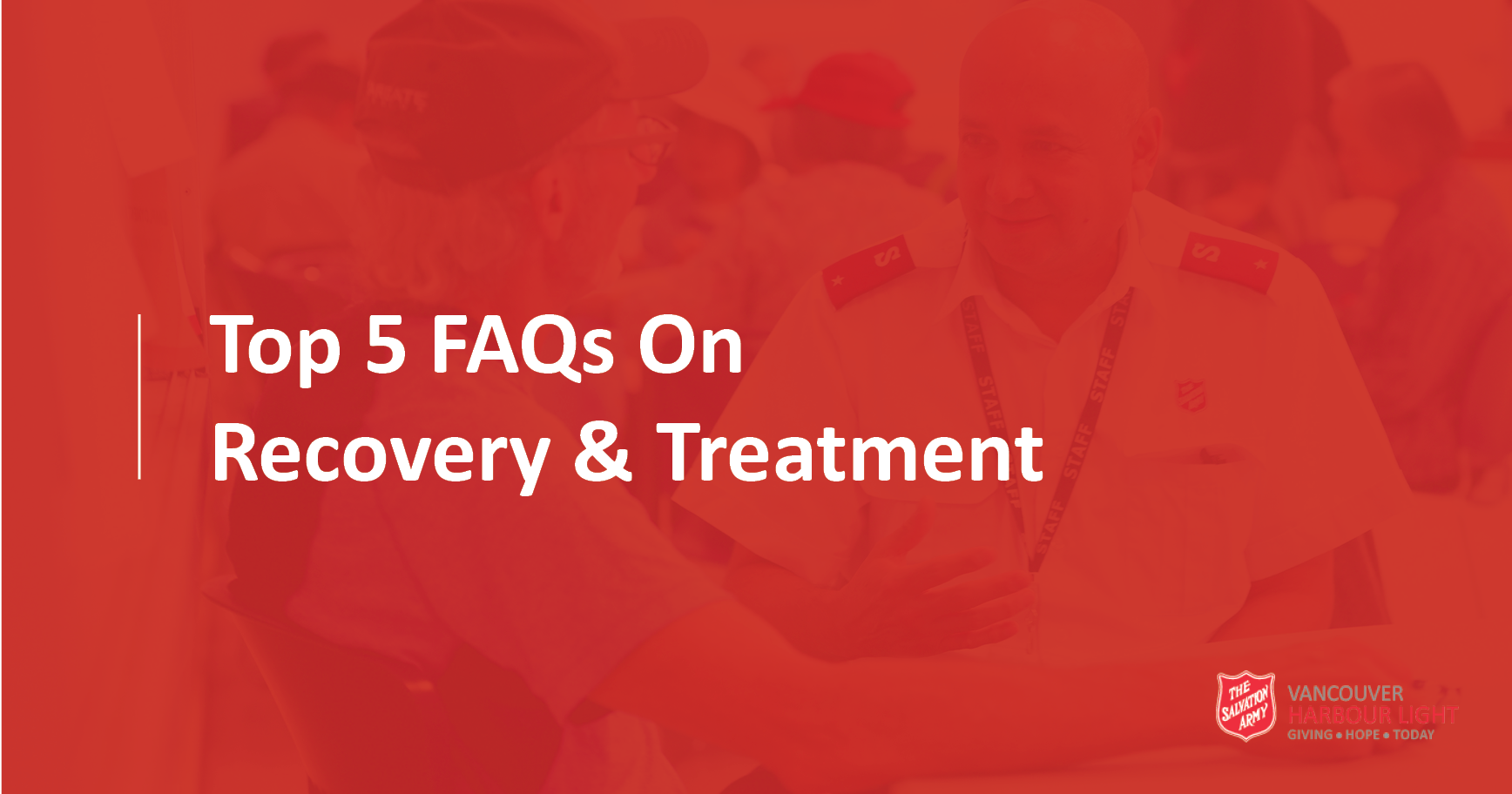
06 Oct TOP 5 FAQS On Recovery & Treatment
Seeking out recovery for yourself or others can be an overwhelming experience. Here is one of our treatment program counsellors’ responses to the top 5 frequently asked questions when looking for a recovery program, or if you are just interested in what recovery is about:
1) Is residential treatment the only way to recover from addiction?
No, treatment is not the only option. Some people manage to recover with help and support from friends; addictions counselling; life changes; etc. Others may commit to a 12-step program (in fact, 12-step participation is vigorously recommended at Harbour Light as a foundation for everyone’s programs in recovery).
But many will find they can’t manage by these alone. They need more help and support, to get a solid recovery started. Participation in licensed, residential treatment offers these people their best chance at sustained recovery. In residential treatment, clients are provided with best-practices relapse prevention instruction and life skills training; therapeutic counselling and group work; access to 12-step meetings; emotional and spiritual supports; and a safe and engaging environment among like-minded peers.
2) How do I know if treatment will work for me?
Success in treatment depends on many different factors since every person and their circumstances are unique. However, people observed to succeed in treatment do tend to share some common attributes. These include:
Readiness to make what may at first be uncomfortable changes in the way they live their lives; the ability to be open and truly honest about themselves and their feelings; and the willingness to replace old and broken (but familiar) tools for living, with new and better ones.
3) Do I have to be Christian to go to treatment?
Your personal choice of religion, or decision against making such a choice, has no bearing on the welcome extended to you, or your ability, to participate in treatment at Harbour Light. That said, treatment is by its nature a profoundly spiritual personal journey. Participation will routinely involve discussions on topics about God, life’s meaning, morality, sense of connection, and so on. However, staff respects each person’s right to their own beliefs at Harbour Light, and will support you on your own spiritual journey.
4) Is it true that relapse is just a part of everyone’s recovery?
No, not everyone who enters recovery will have a brief ‘slip’, or a more lengthy ‘relapse’. It does happen though, and even frequently, but it does not have to happen. And it is no small matter — the consequences of a relapse to the confidence of someone addicted, and their loved ones, are demoralizing and sometimes devastating. Residential treatment trains clients, and provides them with a safe living environment, to avoid relapse. But when it has occurred in past, residential treatment is also designed to look closely at what might have been missing, or perhaps went wrong before the relapse; and works with the client to use that information, and develop a more resilient program for their future.
5) How do I get into treatment?
To get admitted to treatment, most organizations will have an online contact or application process, such as that on Harbour Light Vancouver’s page here. You do not need to be referred by a doctor or other professional, although this is also a common route to intake.
The private pay cost of treatment at Vancouver Harbour Light is also quite reasonable, presently standing at only 65 dollars per day, including food and shelter, programs and counselling. For those without the means, public funding is also available and routinely accessed through disability, medical, and social assistance programs. Access Vancouver Coastal Health Access Central to seek what assistance you may require in accessing services.
— Brian Kellett, Treatment Program Addiction Counsellor

No Comments